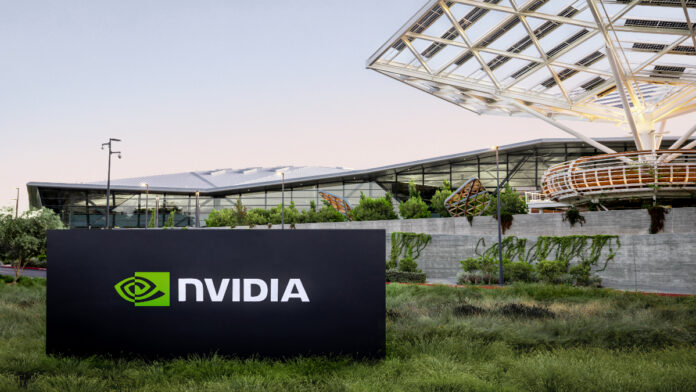Nvidia confirmed it is currently in the process of filing the relevant applications with the U.S. government, with the main aim of resuming deliveries to customers soon
In sum – what to know:
Nvidia eyes H20 return to China – Nvidia is preparing to resume sales of its China-specific H20 AI chip after receiving informal assurance of a license from U.S. authorities.
Export controls hit hard – The chipmaker previously took a $4.5B hit due to excess H20 inventory and restrictions; H100 and H200 GPUs remain under export ban.
Balancing policy and diplomacy – Nvidia’s CEO met with leaders in both Beijing and Washington, stressing open-source AI, onshoring, and U.S. leadership in global AI development.
U.S. AI chipmaker Nvidia received assurances from U.S. authorities it would be given a license to resume sales of its H20 chip in the Chinese market, the company’s CEO Jensen Huang said in a blog post.
Nvidia’s H20 chip is currently subject to export restrictions imposed by the Trump administration.
The company confirmed it is currently in the process of filing the relevant applications with the government with the main aim of resuming deliveries to customers soon.
Nvidia H100 and H200 GPUs have been restricted from sale to China by the U.S. government since 2022 over security concerns. In April 2025, the U.S. expanded restrictions to include the H20 chip, a China-specific version designed to comply with earlier export rules. As a result of these new requirements, Nvidia incurred a $4.5 billion charge in the first quarter of fiscal 2026 associated with H20 excess inventory and purchase obligations as the demand for H20 diminished, Nvidia previously stated.
Chinese firms are reportedly planning to build dozens of data centers in Xinjiang, potentially housing nearly 115,000 restricted Nvidia AI chips, according to a recent Bloomberg investigation — which raised questions about how so many chips could be acquired while sales were banned. Nvidia responded to that Bloomberg report by saying that a company merely posting online inquiries for restricted GPUs does not equate to building a functioning data center.
The company also stressed that constructing a modern data center requires extensive support and engineering, and added that the firm does not offer services or repairs for restricted chips. It added that relying on outdated or smuggled chips to power data centers is neither efficient nor cost-effective, especially given the local availability of Huawei chips.
The investigation also noted that the Xinjiang government and China’s Ministry of Industry and Information Technology did not respond to requests for clarification or comment about these projects.
In a recent visit to Beijing, Huang met with government and industry officials to discuss how AI will raise productivity and expand opportunity. The discussions underscored how researchers worldwide can advance safe and secure AI for the benefit of all, Nvidia said.
Huang also recently met with President Trump and U.S. policymakers, reaffirming the firm’s support for the Administration’s effort to create jobs, strengthen domestic AI infrastructure and onshore manufacturing, and ensure that America leads in AI worldwide.
The executive also emphasized Nvidia’s commitment to support open-source research, foundation models and applications, which democratize AI and will empower emerging economies in every region, including Latin America, Europe, Asia and beyond.
“General-purpose, open-source research and foundation models are the backbone of AI innovation,” Huang said. “We believe that every civil model should run best on the U.S. technology stack, encouraging nations worldwide to choose America.”
U.S. Treasury Secretary Scott Bessent told Bloomberg in an interview that the Nvidia export controls have been a “negotiating chip” in the larger US-China trade talks, in which the two countries have made a deal to lower tariffs charged on one another.
Nvidia is the world’s most valuable firm, and last week became the first publicly traded company to reach a valuation of $4 trillion.

